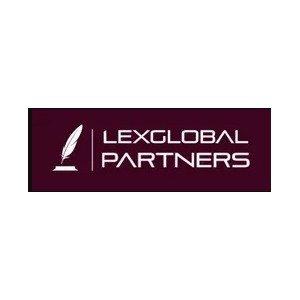Best New Business Formation Lawyers in Kabul
Share your needs with us, get contacted by law firms.
Free. Takes 2 min.
List of the best lawyers in Kabul, Afghanistan
About New Business Formation Law in Kabul, Afghanistan
Starting a new business in Kabul, Afghanistan involves complying with various legal requirements and regulations. Understanding the New Business Formation Law is crucial to ensure your business is established properly and operates within the legal framework. This guide provides valuable information on the key aspects of New Business Formation in Kabul, Afghanistan.
Why You May Need a Lawyer
While starting a business in Kabul, Afghanistan, there are several situations in which seeking legal advice from a lawyer can be beneficial. Some common scenarios where you may require legal help include:
- Understanding the legal procedures and requirements for business registration
- Drafting and reviewing contracts and legal agreements
- Complying with tax laws and financial regulations
- Resolving disputes with partners, employees, or other entities
- Navigating the complex legal system in Kabul, Afghanistan
Local Laws Overview
Before starting a new business in Kabul, Afghanistan, it is important to be familiar with the local laws regulating business formation. Here are some key aspects of local laws that are particularly relevant to New Business Formation in Kabul, Afghanistan:
- The Afghanistan Investment Support Agency (AISA) is responsible for business registration and can provide guidance on the necessary procedures.
- Foreign businesses may need to partner with a local Afghan individual or entity for certain types of businesses.
- Various legal forms are available for business incorporation, such as sole proprietorship, partnership, and private limited company.
- Obtaining business licenses and permits is mandatory for certain activities.
- Tax obligations and reporting requirements must be fulfilled to operate legally.
Frequently Asked Questions
Q: What are the requirements for registering a new business in Kabul?
A: To register a new business in Kabul, you will need to follow the procedures outlined by AISA. This generally involves obtaining the necessary documents, completing the application form, and paying the required fees.
Q: Can foreigners start a business in Kabul, Afghanistan?
A: Yes, foreigners can start a business in Kabul. However, depending on the nature of the business, you may need to partner with a local Afghan individual or entity.
Q: What type of legal structure should I choose for my business?
A: The legal structure you choose depends on various factors such as liability, ownership, and tax considerations. It is recommended to consult with a lawyer or business advisor to determine the most suitable legal form for your business.
Q: What are the tax obligations for businesses in Kabul?
A: Businesses in Kabul are subject to various tax obligations, including income tax, value-added tax (VAT), and payroll taxes. It is important to understand and fulfill your tax obligations to avoid penalties and legal issues.
Q: What resources can I consult for further information on New Business Formation in Kabul, Afghanistan?
A: The following resources can provide valuable information and assistance for New Business Formation in Kabul, Afghanistan:
- The Afghanistan Investment Support Agency (AISA) - visit their website or contact their offices for guidance on business registration.
- Local chambers of commerce and industry associations can provide industry-specific information and support.
Next Steps
If you require legal assistance in New Business Formation in Kabul, Afghanistan, it is recommended to consult with a qualified lawyer specializing in business law. They can provide personalized guidance based on your specific needs and help you navigate the legal complexities of starting a new business in Kabul, Afghanistan.
Lawzana helps you find the best lawyers and law firms in Kabul through a curated and pre-screened list of qualified legal professionals. Our platform offers rankings and detailed profiles of attorneys and law firms, allowing you to compare based on practice areas, including New Business Formation, experience, and client feedback.
Each profile includes a description of the firm's areas of practice, client reviews, team members and partners, year of establishment, spoken languages, office locations, contact information, social media presence, and any published articles or resources. Most firms on our platform speak English and are experienced in both local and international legal matters.
Get a quote from top-rated law firms in Kabul, Afghanistan — quickly, securely, and without unnecessary hassle.
Disclaimer:
The information provided on this page is for general informational purposes only and does not constitute legal advice. While we strive to ensure the accuracy and relevance of the content, legal information may change over time, and interpretations of the law can vary. You should always consult with a qualified legal professional for advice specific to your situation.
We disclaim all liability for actions taken or not taken based on the content of this page. If you believe any information is incorrect or outdated, please contact us, and we will review and update it where appropriate.










